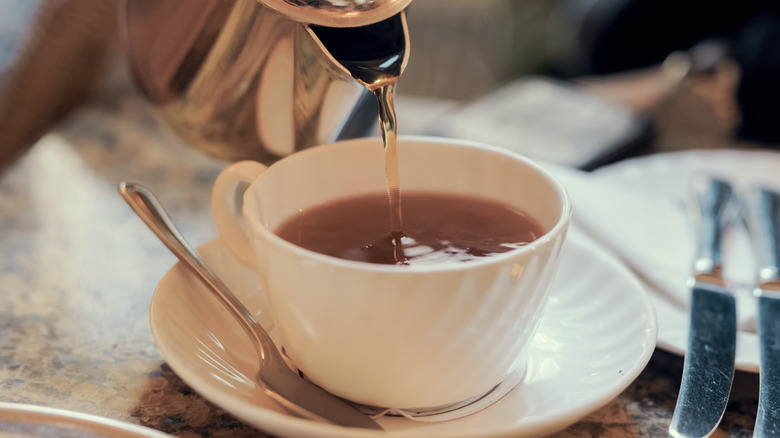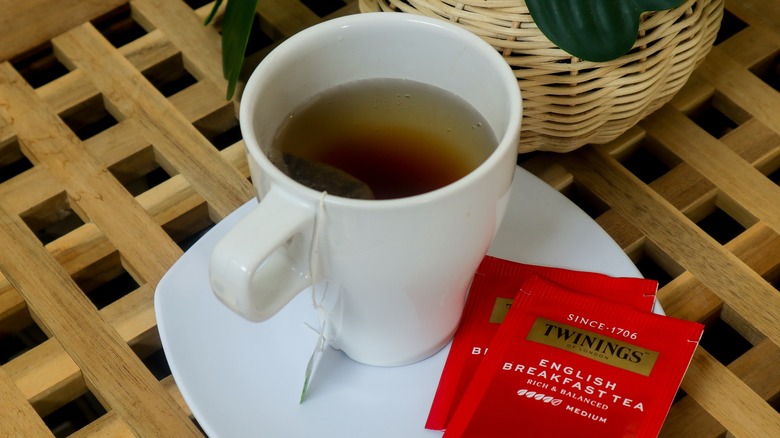The Origin Of English Breakfast Tea Dates Back To The 1800s
The tradition of drinking tea in England dates back to the 17th century, when the Dutch introduced the beverage to London coffeehouses. Tea, a symbol of sophistication, was initially a luxury item enjoyed by the aristocracy. However, by the 18th century, tea had trickled down through society, becoming a household commodity (albeit due to plenty of smuggling).
English breakfast tea (which differs from Earl Grey due to its lack of one ingredient, bergamot oil) is believed to have entered the market in the 19th century. While its precise origins remain a mystery, one popular account credits its creation to Robert Drysdale, a Scottish tea master who, in 1892, crafted a regional blend that could stand up to the heartiness of a standard British breakfast. The medley combined a trio of black teas from Assam (a state in India), Ceylon (present-day Sri Lanka), and Kenya, all known for their full-bodied flavor.
Another theory suggests that Queen Victoria brought English breakfast tea into vogue. During a visit to Scotland, Her Majesty encountered a spirit black tea blend that was served to accompany substantial fare. Enamored by its palate, she brought it back to England, where it quickly gained popularity as the result of her royal testimonial. The tea's controversial new name, English breakfast, may have been a snub to its country of origin, but the term is thought to have been coined to signify its suitability for the first meal of the day.
English breakfast tea is an invigorating blend
When breakfast became a working class ritual in the 1800s, a cup of tea provided the fuel laborers needed. This societal shift further cemented English breakfast tea as an accessible, sustainable morning essential consumed by more than just the elite.
The iconic black tea blend's appeal lies in its balance of strength and flavor. Assam tea, with its malty, rich, bitter base, offers a robust foundation. Ceylon tea boasts bright, citrusy notes that add a rejuvenating element. Kenyan tea possesses a pleasant, brisk palate that rounds off the overall profile. Collectively, the caffeine content of a standard cup of English breakfast tea is between 30 milligrams and 60 milligrams. To put this in perspective, an average mug of coffee contains around 100 milligrams of caffeine.
English breakfast tea has been solidified as an essential part of British culture, cherished for its comforting yet stimulating qualities. Whether paired with eggs, bacon, and buttered toast, or sipped plain, with a splash of milk, or a spoonful of sugar, English breakfast tea undeniably brings a refreshing start to the day.

